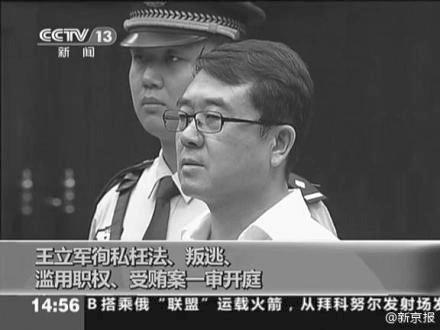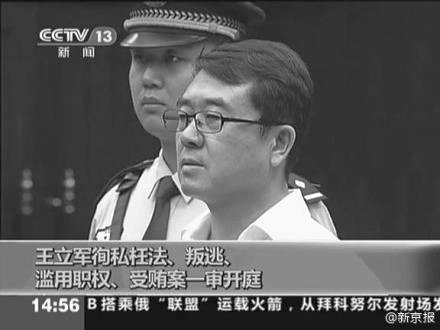In a three sentence-long notice that was first published in English, the Chinese state mouthpiece Xinhua announced that Wang Lijun would be given 15 years in prison.
Wang is the policeman, a former chief of police of Chongqing in China’s southwest, whose Feb. 6 flight to a U.S. consulate set off the largest political scandal to engulf the Chinese regime in years.
The trial against Wang began in secret on Sept. 17 and continued to Sept. 18, where he was charged with “bending the law for selfish ends, defection, abuse of power, and bribe-taking.” State propaganda outlets later published a detailed, multipage narrative that examined the supposed crimes of Wang, while implicating his former boss Bo Xilai.
The story as told by the Chinese Communist Party largely hinges on Wang covering up for Bo’s wife, Gu Kailai, murdering the British businessman Neil Heywood. Nothing in the case against Wang mentioned his involvement in the harvesting of organs from prisoners in China’s northeast, which he boasted about in a 2006 award speech. Analysts said that those organs were probably removed from living bodies, and that those bodies probably belonged to practitioners of Falun Gong, a spiritual discipline that is persecuted by the Chinese regime.
The recent official version of Wang’s crimes was also silent about the charge of “abuse of power.” Analysts say Wang listened in on the phone calls of top communist leaders at the behest of Bo Xilai, who was seeking a top spot in the Communist Party. The CCP’s account thus avoids calling attention to the bare-knuckled factional struggle Bo was involved in.
Internet censors were mobilized in force after the announcement of Wang’s sentence, which took place at about the beginning of the workday on Monday in China. Comments on Sina Weibo, a popular Twitter-like platform, were quickly deleted. “800 posts became 500 posts in the blink of an eye,” one netizen said.
The tenor of many was derisive, mocking, and dripping with sarcasm and disgust toward the authorities, who many Internet citizens, or netizens, believe have cut the narrative of Wang and Gu’s crimes from the whole cloth.
One post that was not deleted noted that the sentence seemed light for all the trouble the authorities went to. “Four big crimes, so on average that’s less than four years per crime. Was it worth it? Those poor playwrights, they worked so hard!”
Editor’s Note: When Chongqing’s former top cop, Wang Lijun, fled for his life to the U.S. Consulate in Chengdu on Feb. 6, he set in motion a political storm that has not subsided. The battle behind the scenes turns on what stance officials take toward the persecution of Falun Gong. The faction with bloody hands—the officials former CCP head Jiang Zemin promoted in order to carry out the persecution—is seeking to avoid accountability for their crimes and to continue the campaign. Other officials are refusing to participate in the persecution any longer. Events present a clear choice to the officials and citizens of China, as well as people around the world: either support or oppose the persecution of Falun Gong. History will record the choice each person makes.
Ariel Tian contributed research.
The Epoch Times publishes in 35 countries and in 19 languages. Subscribe to our e-newsletter.
Click www.ept.ms/ccp-crisis to read about the most recent developments in the ongoing crisis within the Chinese communist regime. In this special topic, we provide readers with the necessary context to understand the situation. Get the RSS feed. Who are the Major Players? ![]()







